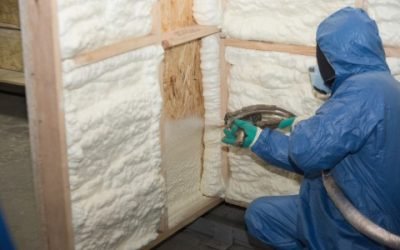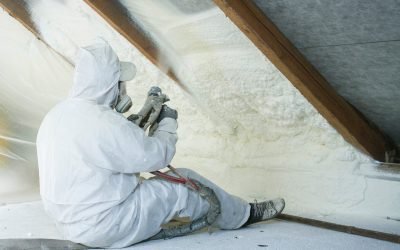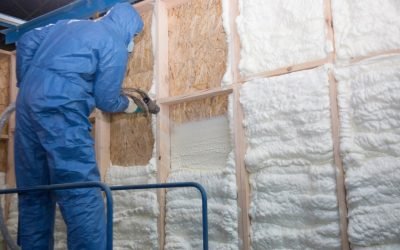Can mold grow on spray foam insulation in Roseville? | Spray Foam Insulation Contractor
Last Updated on May 29, 2024 by Spray Foam Insulation Plus
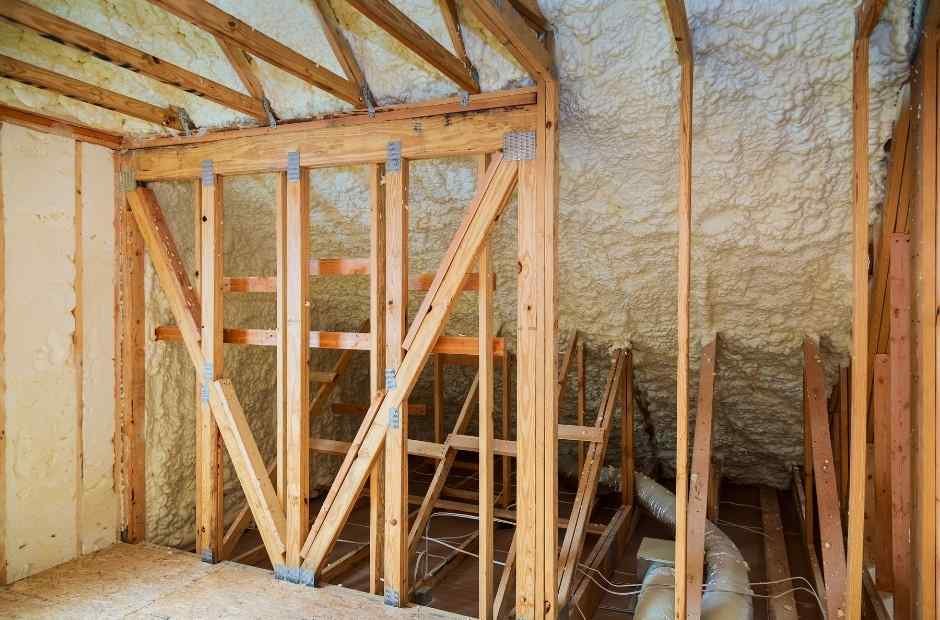 Mold is a type of fungus that grows on decaying organic matter. It’s a common problem for homes, especially in warm and humid climates like Florida and Hawaii. In fact, almost all houses have some form of mold growth somewhere inside—which can affect your health and cause significant damage to your property. So what if you have mold in the attic? Can it spread to your spray foam insulation? The short answer is yes: if there’s enough moisture in your attic, then mold will grow on any surface that it touches—even spray foam insulation! But don’t worry; there are steps you can take to prevent this from happening! If you’re interested in finding a Spray Foam Insulation Contractor Roseville MN, then reach out to Spray Foam Insulation Plus today for help!
Mold is a type of fungus that grows on decaying organic matter. It’s a common problem for homes, especially in warm and humid climates like Florida and Hawaii. In fact, almost all houses have some form of mold growth somewhere inside—which can affect your health and cause significant damage to your property. So what if you have mold in the attic? Can it spread to your spray foam insulation? The short answer is yes: if there’s enough moisture in your attic, then mold will grow on any surface that it touches—even spray foam insulation! But don’t worry; there are steps you can take to prevent this from happening! If you’re interested in finding a Spray Foam Insulation Contractor Roseville MN, then reach out to Spray Foam Insulation Plus today for help!
Spray foam insulation—especially open cell spray foam—can harbor mold growth.
Spray foam insulation is a great way to insulate your home. It expands as it’s sprayed, creating a continuous barrier that doesn’t let air pass through and keeps the heat in during winter. Open cell spray foam is also used in attics because it is more flexible and can be molded to fit the shape of the space where it’s needed most: on walls and ceilings that have angles or uneven surfaces.
While open cell spray foam insulation can be a great way to save money on heating costs, mold growth in an attic may require professional clean-up to prevent further damage from occurring due to moisture buildup or toxic spores released into your home environment.
The mold is caused by an excess of moisture.
Mold is a fungus that can grow anywhere there is moisture. Spray foam insulation is made of polyurethane, which is an excellent insulator and an effective barrier against moisture. Polyurethane doesn’t let water pass through it, so the wet spot on your ceiling isn’t going to spread through your walls. The mold has probably been caused by an excess of moisture getting onto the surface of the spray foam insulation, where it will eventually dry out and stop growing. If this happens repeatedly over time (like if you live in a humid climate), then it’s possible for mold spores from outside sources to settle atop your spray foam insulation and begin growing into colonies as well as spreading outward from there into other areas where they may not be able to survive for long periods without moisture being present.
This is often due to leaks or poor ventilation in your attic.
The cause of mold growth on spray foam insulation is often due to leaks or poor ventilation in your attic. Spray foam insulation is designed to be airtight, but air leaks can occur during installation. If a small amount of moisture gets trapped within the wall cavity behind the spray foam insulation and doesn’t dry out, this can lead to moisture problems and eventually mold growth.
Poor ventilation in an attic may also lead to mold growth on spray foam insulation by trapping moisture within the wall cavities without allowing them to dry out properly. As with an air leak, this causes condensation that leads to mold growth over time if it’s not corrected before long periods of time pass without proper ventilation being provided for the whole house (for example, through forced-air heat pumps).
If you think your spray foam insulation is growing mold, call a professional right away.
If you think your spray foam insulation is growing mold, call a professional right away. Don’t try to clean it yourself or use any cleaning products on it, as this could make matters worse.
If you can see the mold, you should be able to get rid of it with a simple bleach solution (1/4 cup bleach mixed in 1 gallon of water). This will kill any spores that may still be present after drying and prevent further growth.
An insulation specialist can remove the mold and help you prevent future problems.
When you have a problem with mold, it’s important to understand that not all contractors can safely work with your spray foam insulation. Mold is a serious issue for anyone who works with insulation, so only hire an insulation contractor who specializes in removing and preventing mold from growing.
Mold can grow on spray foam insulation, but there are ways to stop it.
Mold can grow on spray foam insulation if it’s not installed properly. If you notice mold, call a professional right away to have it removed. Spray foam insulation is not a good insulator if it’s not installed correctly and there is excess moisture in the home.
The preferred method for removing mold from spray foam is to hire a professional who uses HEPA vacuums and air scrubbers to clean up mold spores from the air, walls, and furniture in your house. They also remove any stains or discoloration left behind by water damage or humidity that could attract more mold growth in the future, which is why hiring a professional helps prevent future problems with this type of material in your home.
Conclusion
Spray foam insulation may have some drawbacks, but it’s not a bad material to use. If you take care of your attic and keep mold from growing on the insulation, then it can last for years. The key is to keep the moisture levels in your attic at an appropriate level so that they don’t get out of hand. If they do get out of hand and mold starts growing on your spray foam insulation, call in professional help right away so they can remove it before it spreads even further into other parts of your home! At Spray Foam Insulation Plus, we’d be happy to offer you the benefits that Spray Foam Insulation contractor in Roseville Minnesota has to offer, such as: Waterproofing, Attic Insulation, Energy Insulation Rebates, and more! Contact us today for more information on just what Spray Foam Insulation Plus can do for you and your family.
Spray Foam Insulation Contractor Roseville MN
Spray Foam Insulation Contractor Roseville MN
Spray Foam Insulation Contractor Roseville MN
Spray Foam Insulation Contractor Roseville MN
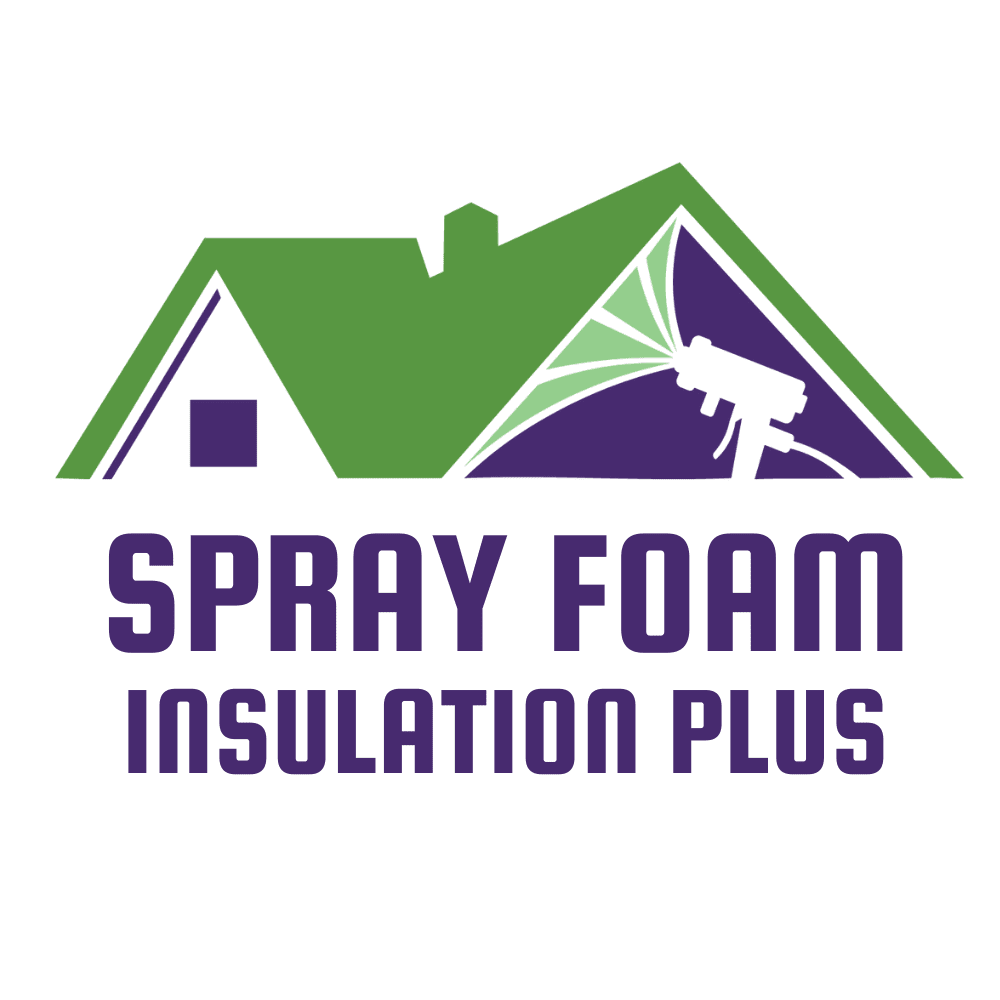
Tags
Preferred Contractors of:


